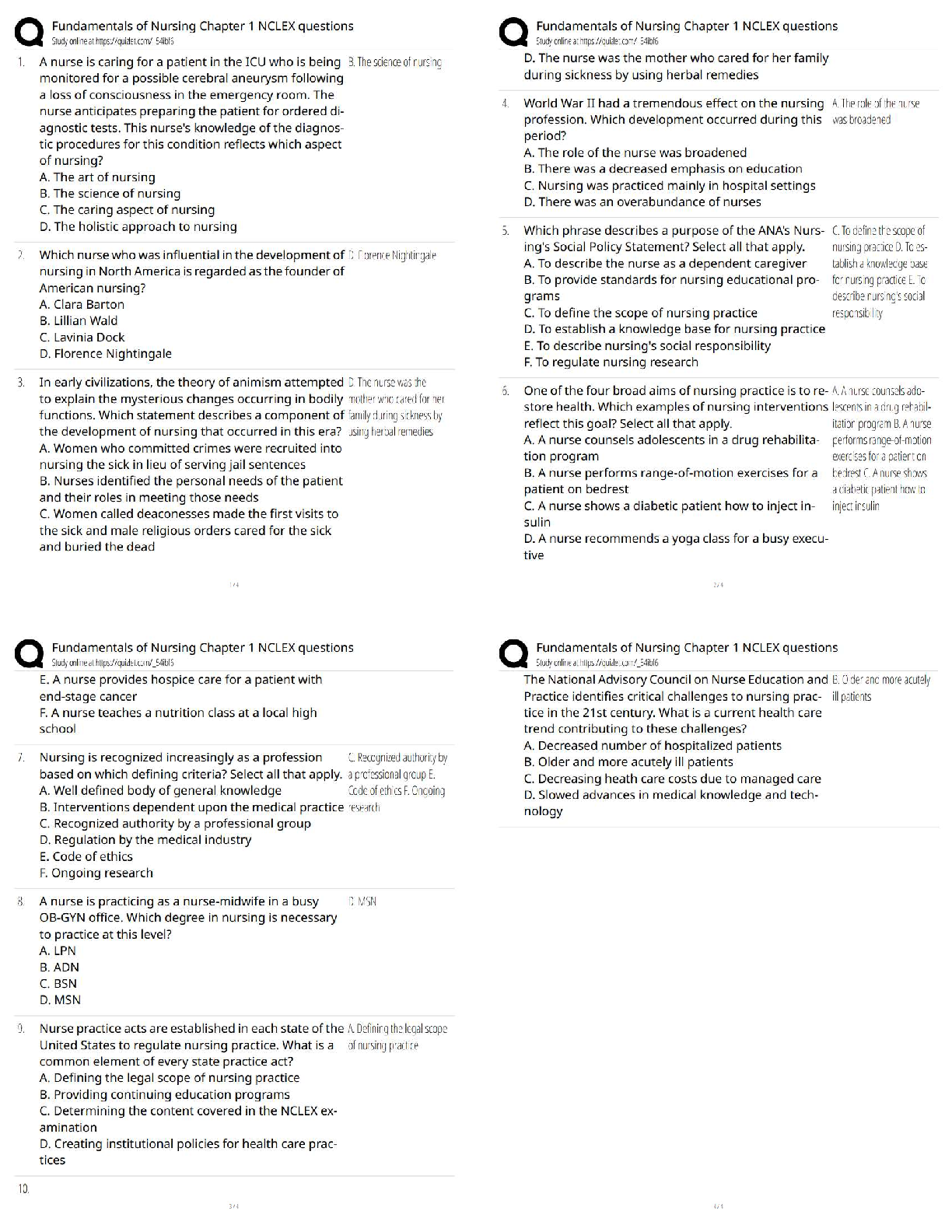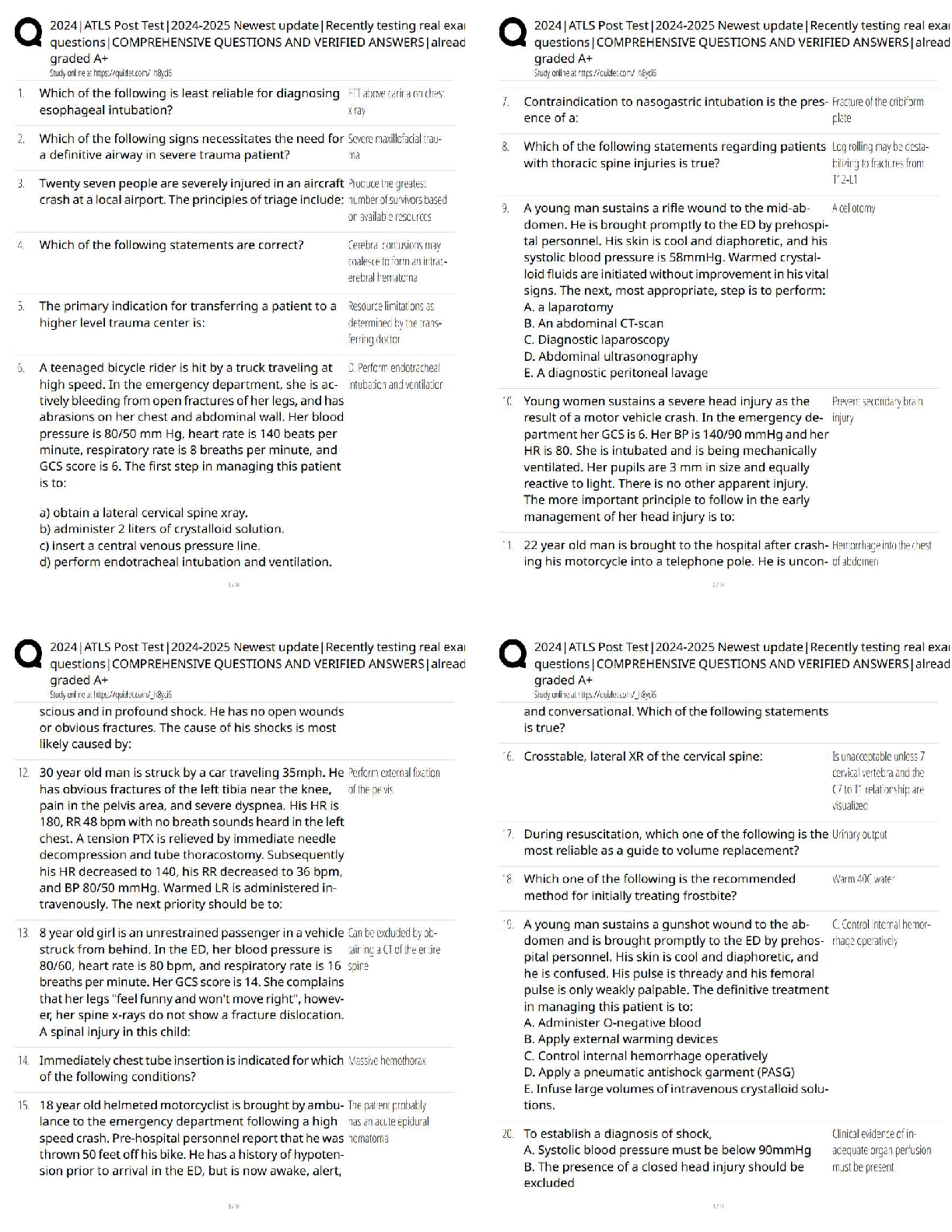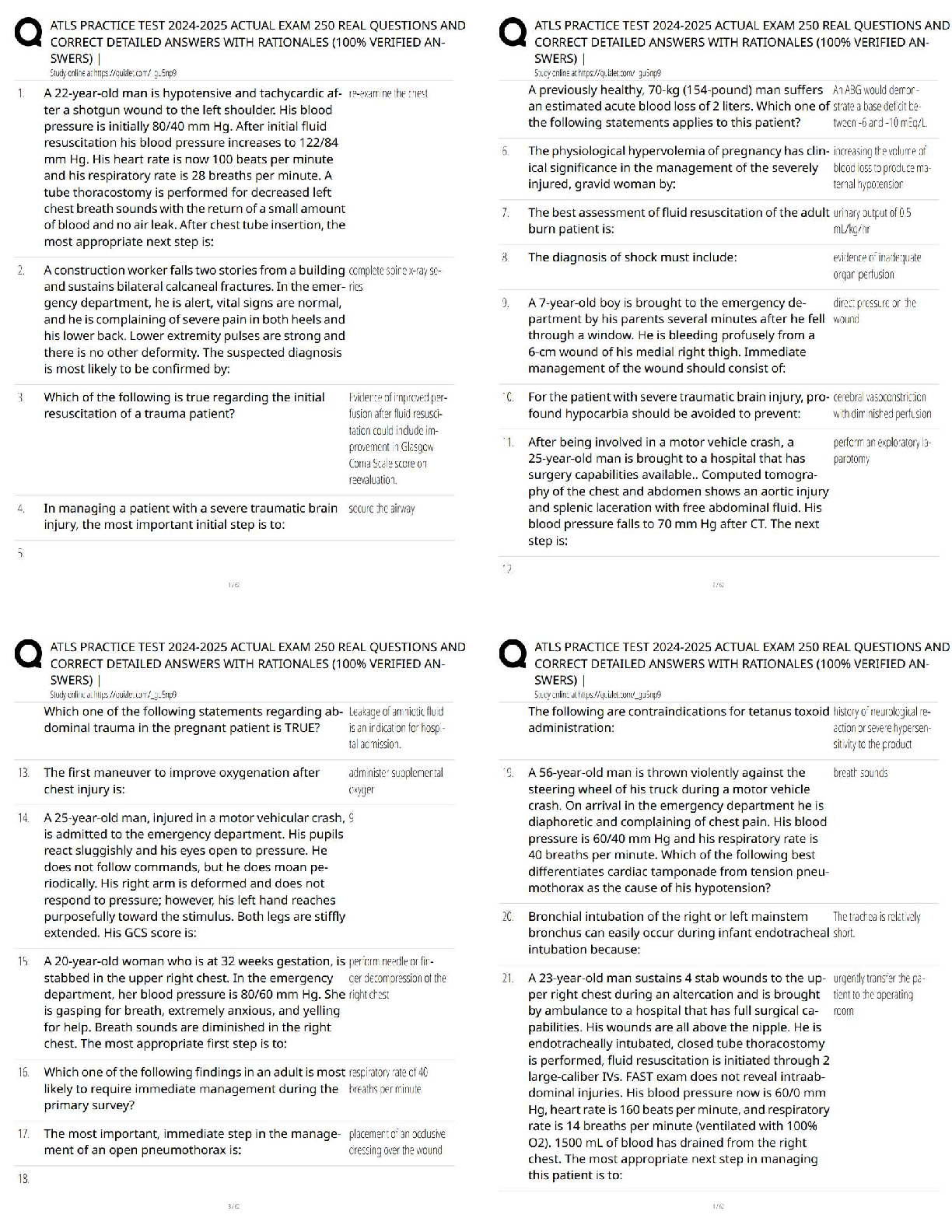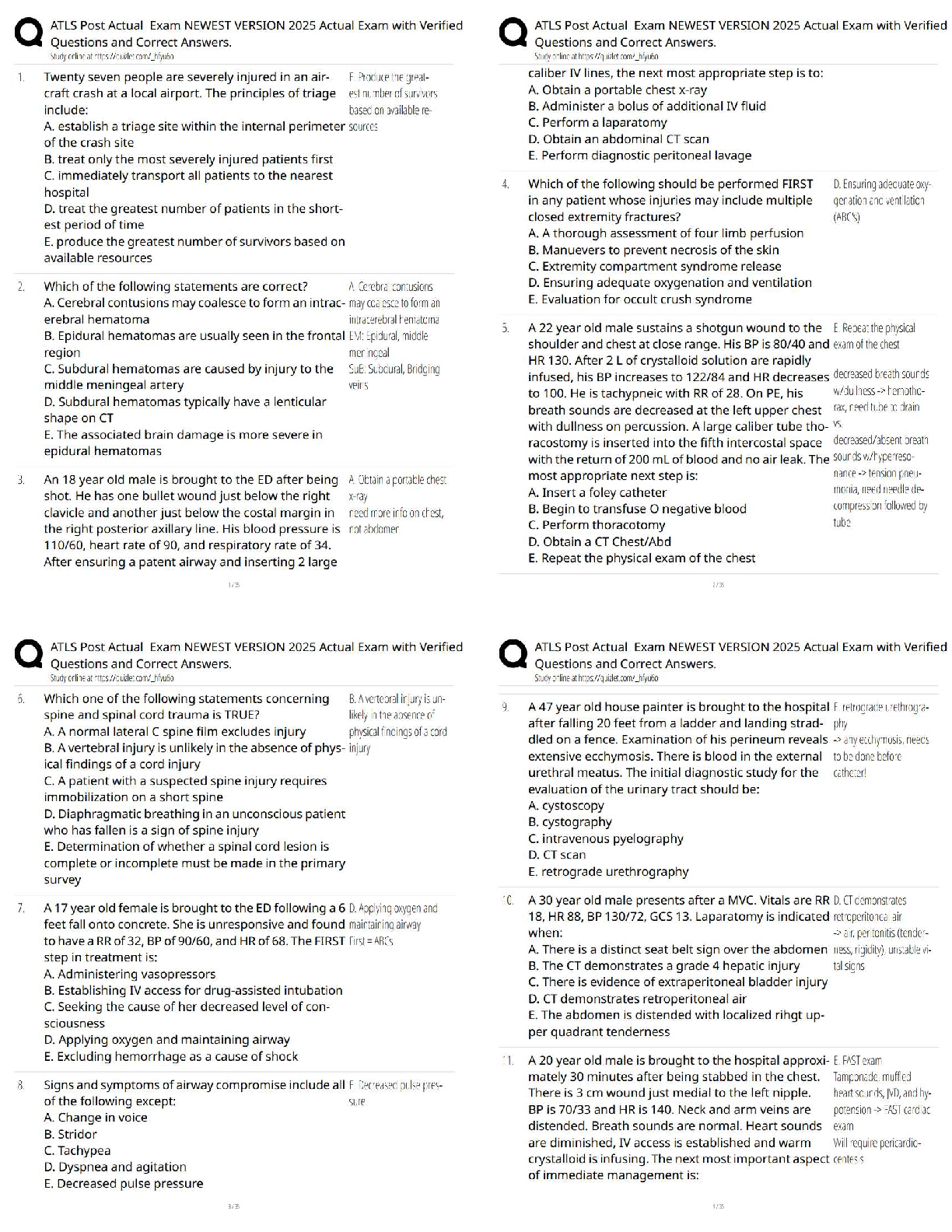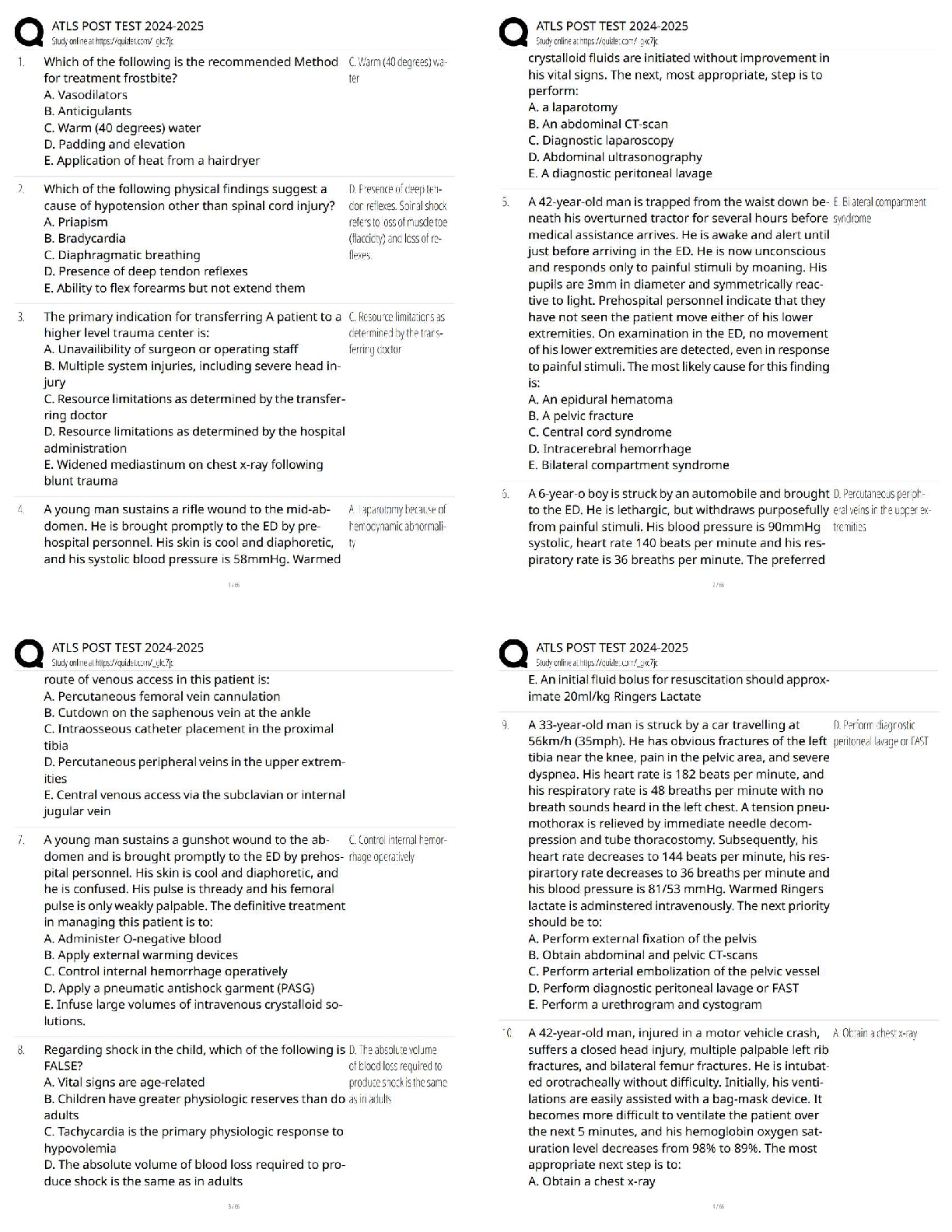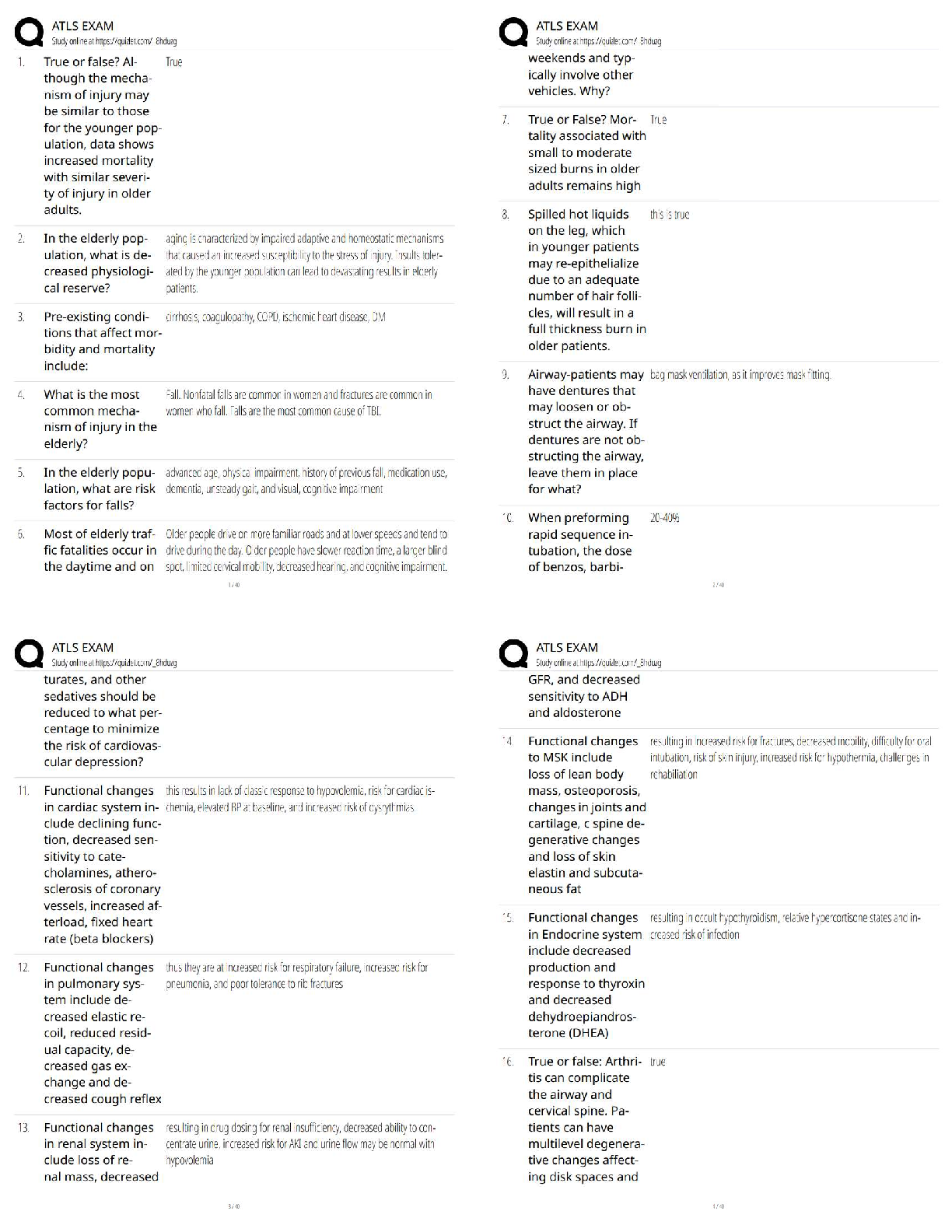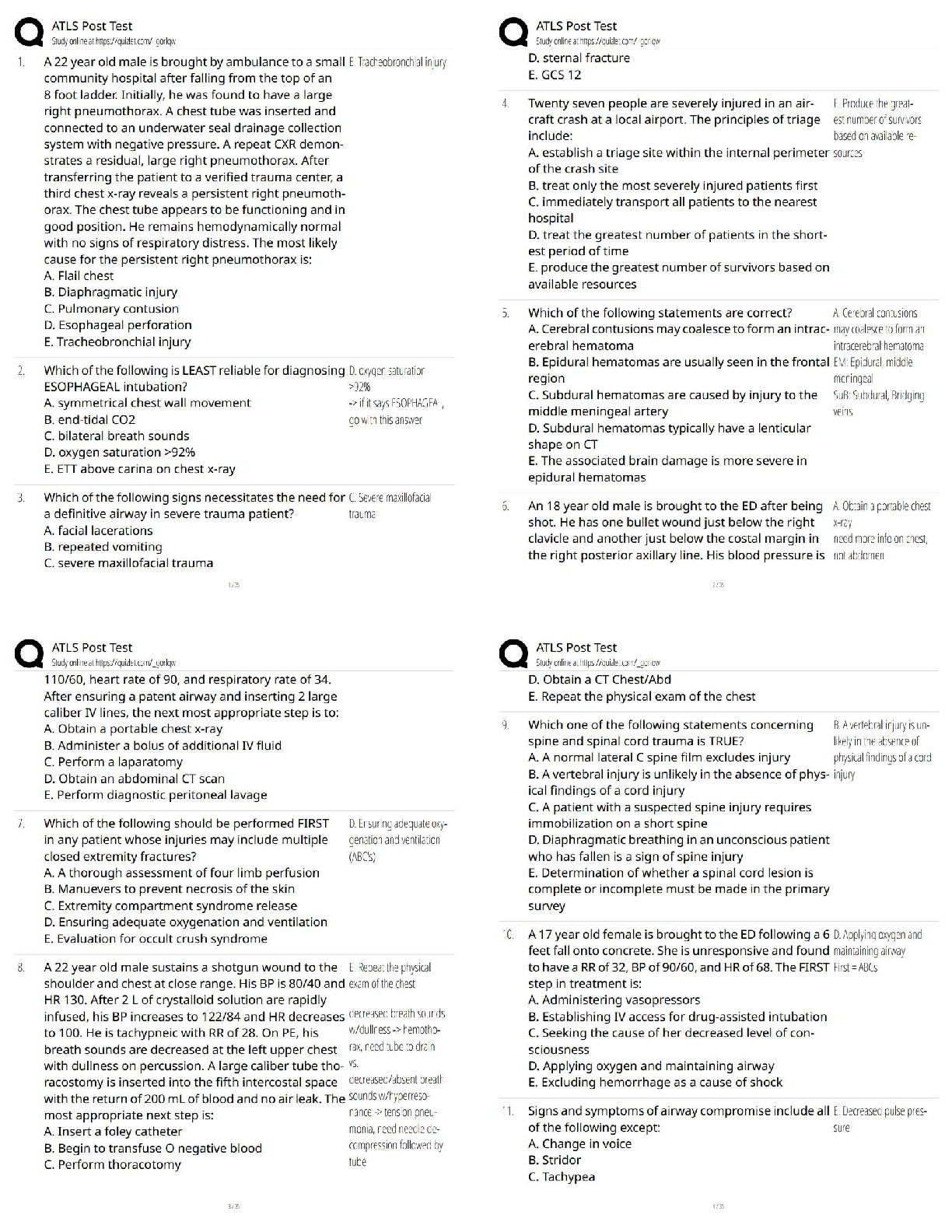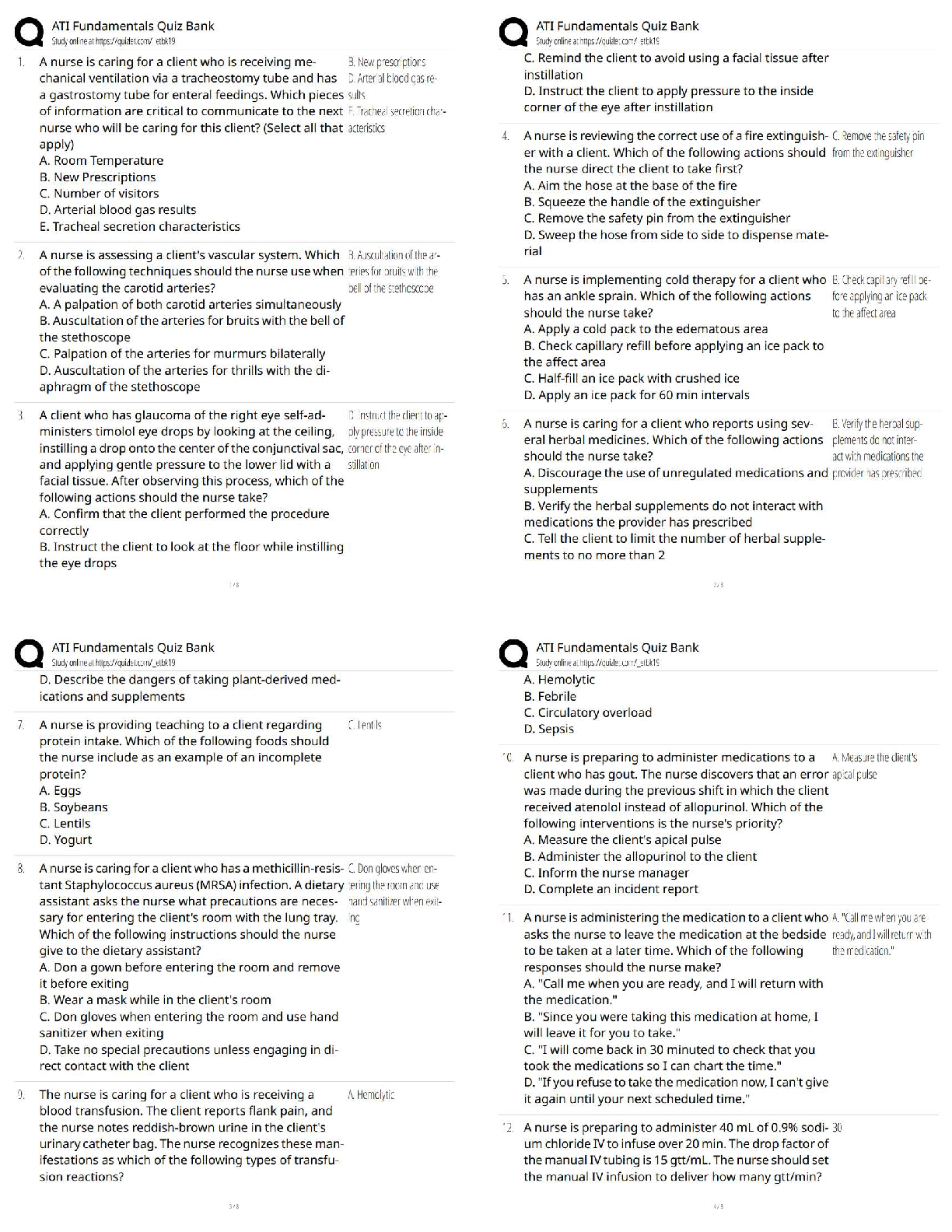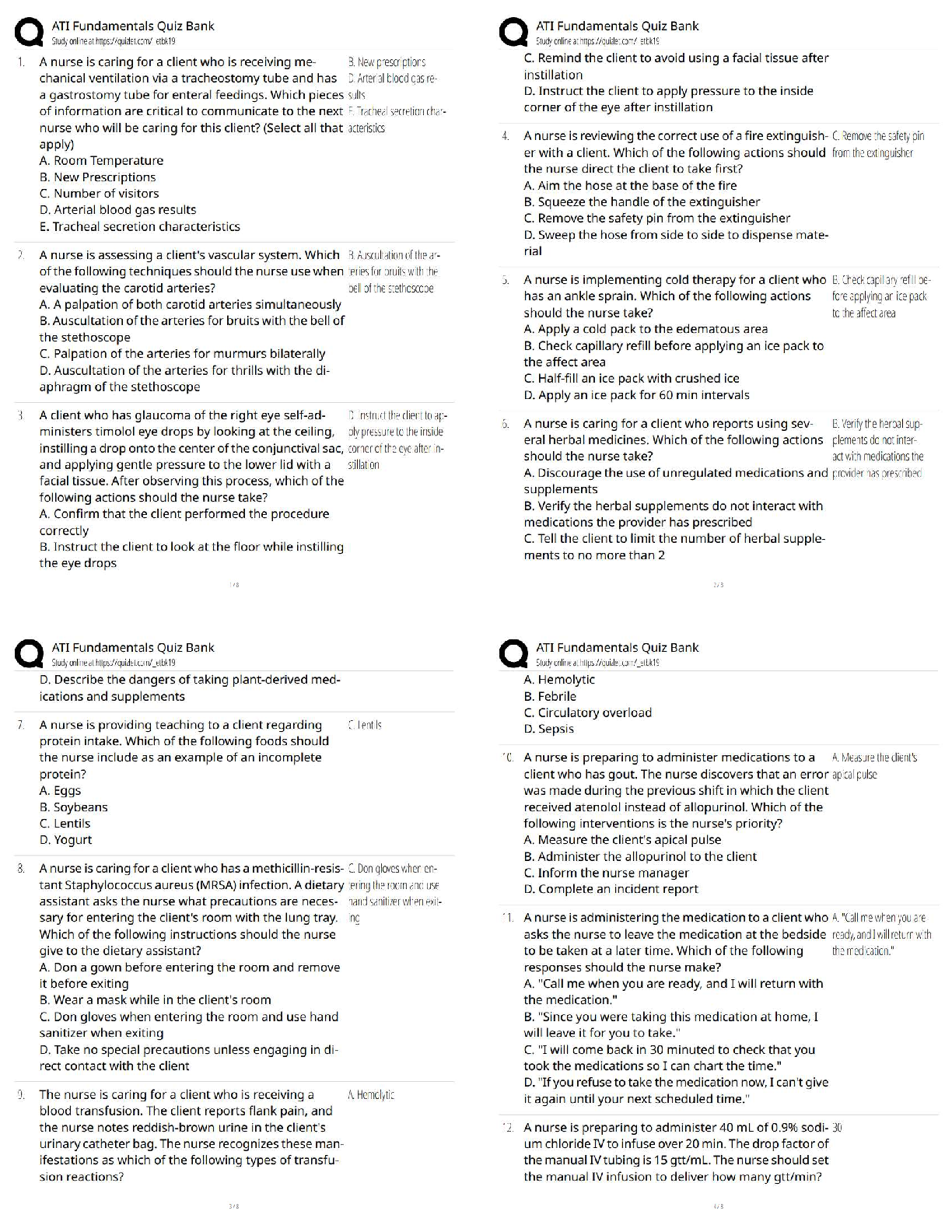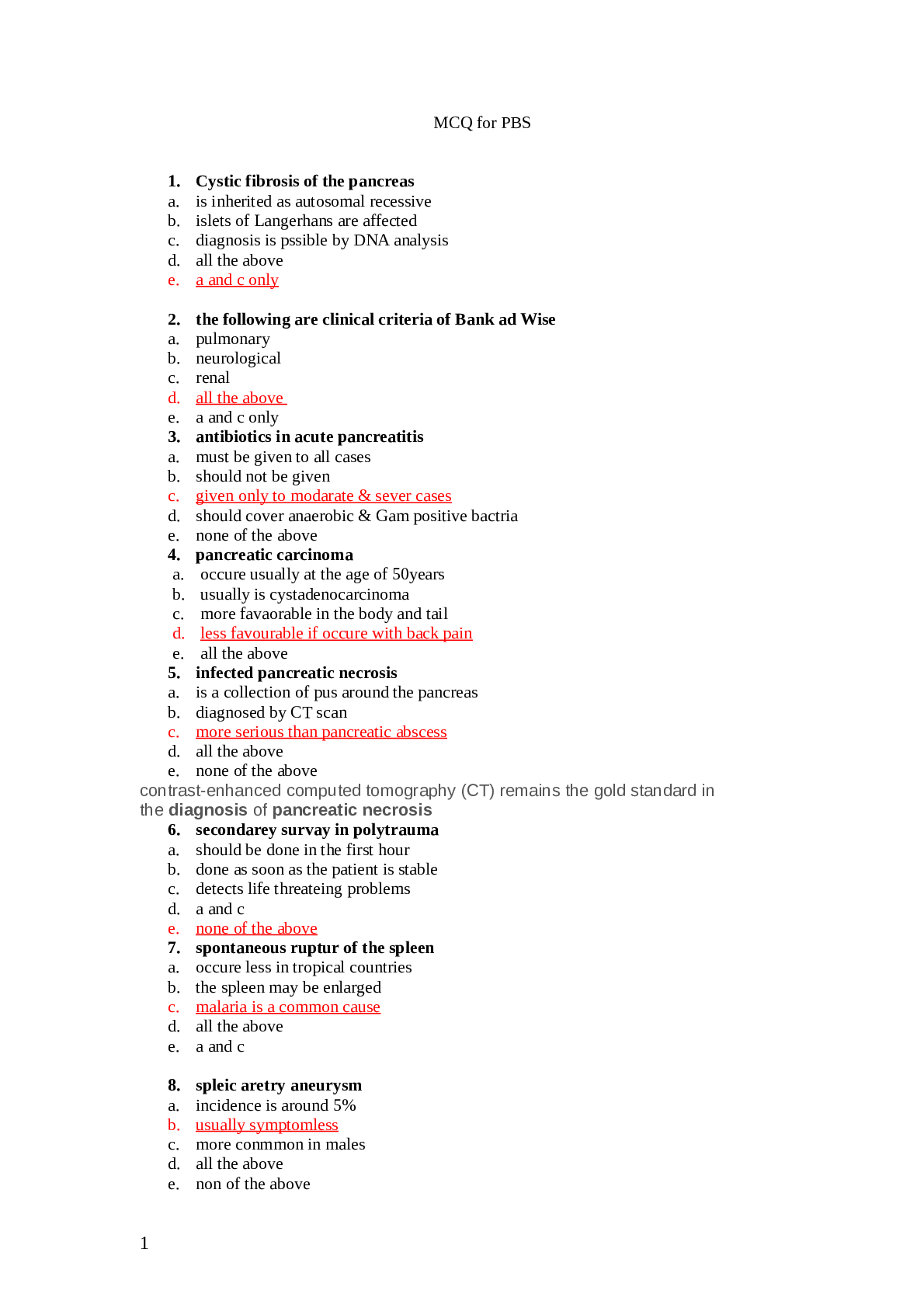Gerontology Chapter 10
The nurse preparing an educational program focused on herbal supplement targets as a likely interested group:
a. Inner-city females who live below the poverty level
b. White females who own thei
...
Gerontology Chapter 10
The nurse preparing an educational program focused on herbal supplement targets as a likely interested group:
a. Inner-city females who live below the poverty level
b. White females who own their own successful businesses
c. Male Hispanic Americans who are single, divorced, or widowed
d. Men and women from small rural communities who are self-employed farmers
During an admission interview, a patient tells the nurse about taking Ginkgo biloba daily. The nurse responds to this information by inquiring whether the client:
a. has ever been screened for depression.
b. experiences gastrointestinal (GI) upset.
c. has concerns regarding impotence.
d. has reoccurring bouts of bronchitis.
An older adult client is being seen for the first time at the outpatient geriatric clinic. As a component of the nursing admission history, the nurse inquires about the use of herbs and other supplements. The basis for this inquiry is that such herbal therapy:
a. may interact with prescription medications.
b. is hazardous when used by older adults.
c. replaces the need for prescription medications.
d. causes excessive sedation in older adults.
The nurse is conducting a presurgical interview when it is noted that the older adult patient's medication list includes Tylenol 650 mg four times a day for arthritic pain, gingko 80 mg twice a day, and glucosamine chondroitin 500 mg three times per day. The nurse proceeds to share with the client that in order to minimize the risk for postsurgical complications, there is the need to refrain from taking:
a. glucosamine chondroitin for 1-2 weeks due to a potential for excess anesthetic sedation.
b. ginkgo for 2 weeks due to the potential for increased bleeding.
c. Tylenol for 24-48 hours due to the potential for increased bleeding.
d. gingko for 1 week due to the potential for an allergic reaction during surgery.
When a nursing interview identifies that a client is daily taking doses of herbal supplements, the nurse's priority is to:
a. evaluate the effectiveness of the herbal supplement self-treatment.
b. determine why the client feels the need to take the herbal supplements.
c. identify when the herbal supplementation began.
d. discuss the client's knowledge regarding the herbal supplements' side effects.
The nurse admitting a client to a same day surgery unit makes the decision to notify the surgical team to cancel the procedure based on the client's statement that:
a. "Will I start taking my St. John's wort as soon as I can eat again?"
b. "I've haven't taken my ginkgo for exactly 10 days."
c. "I didn't want to risk catching a cold so I took my echinacea with just a sip of water."
d. "It seemed strange not taking my garlic pill this morning."
The major focus regarding nursing education for the older adult regarding the use of herbal supplements is the:
a. high risk of herbal overdose since the manufacturing process lacks effective controls.
b. likelihood that the client will substitute herbals for more expensive prescribed medications.
c. expense of the herbal supplements since they are seldom covered by insurance.
d. possibility of dangerous interactions between herbals and the client's prescription medications.
The nurse is confident that the client who chooses to take red rice yeast daily for dyslipidemia has an understanding of its possible side effects when the client:
a. has regular laboratory work to monitor cholesterol levels.
b. shows caution by slowly rising from the chair.
c. states, "If I start noticing muscle pain, I'll stop taking the pills."
d. schedules regular, yearly glaucoma screenings.
[Show More]
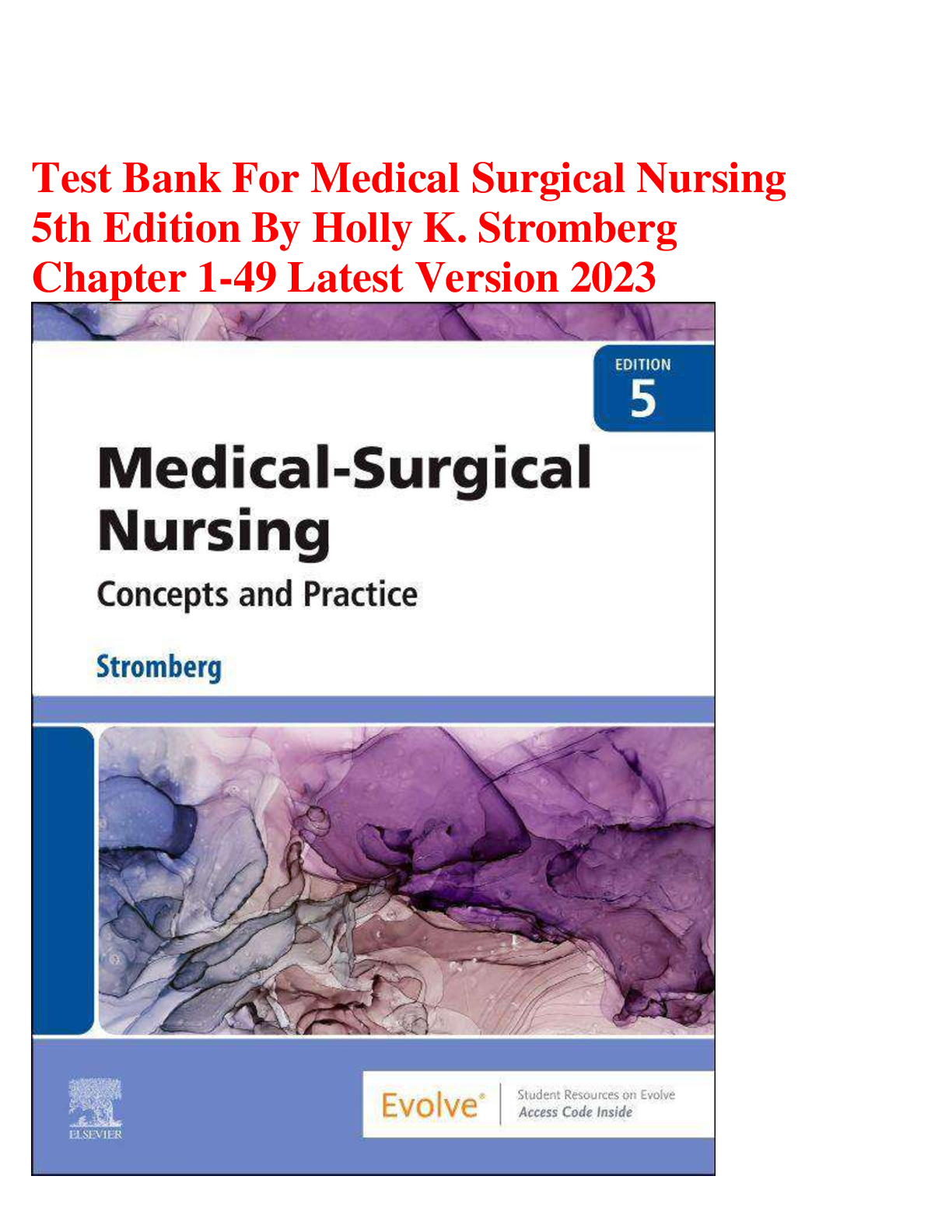

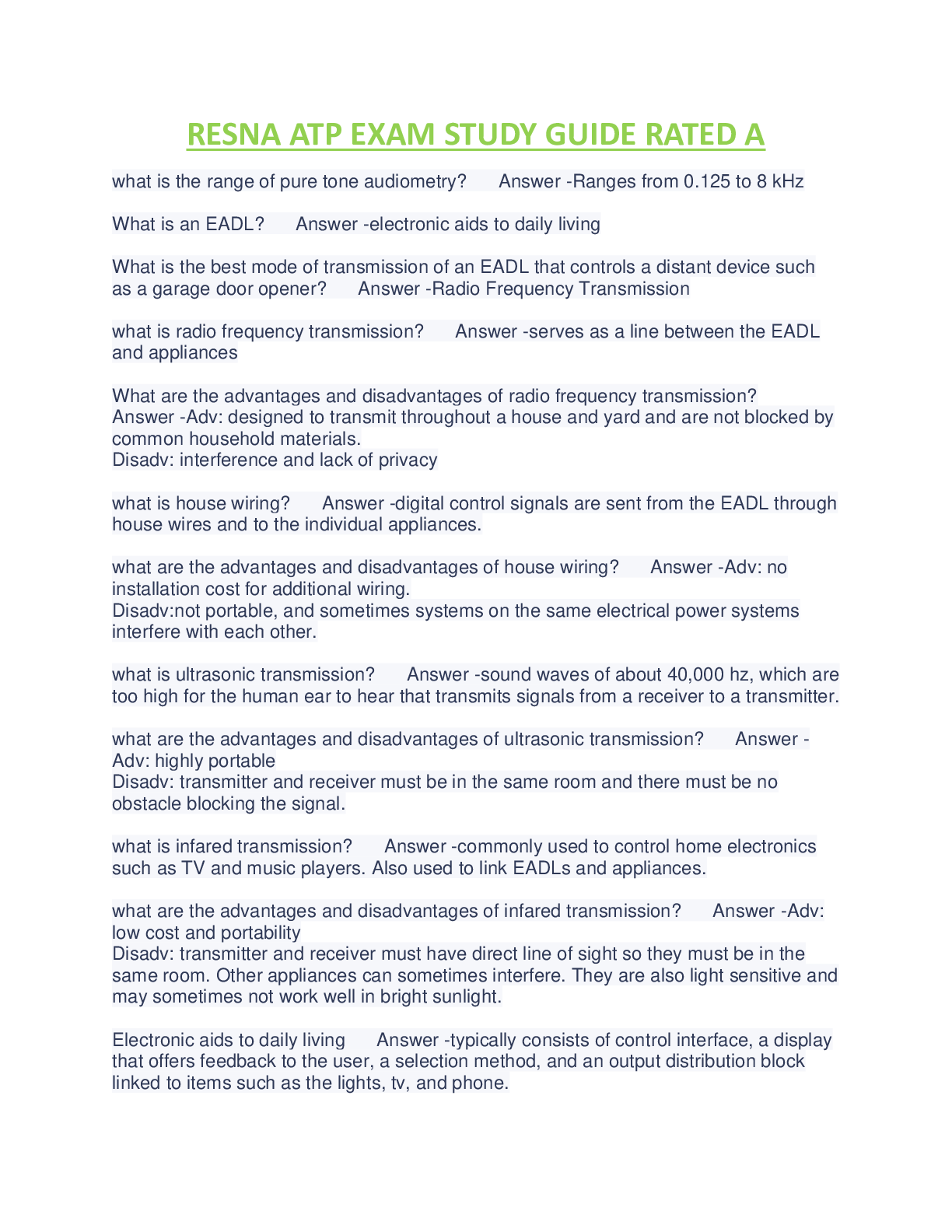





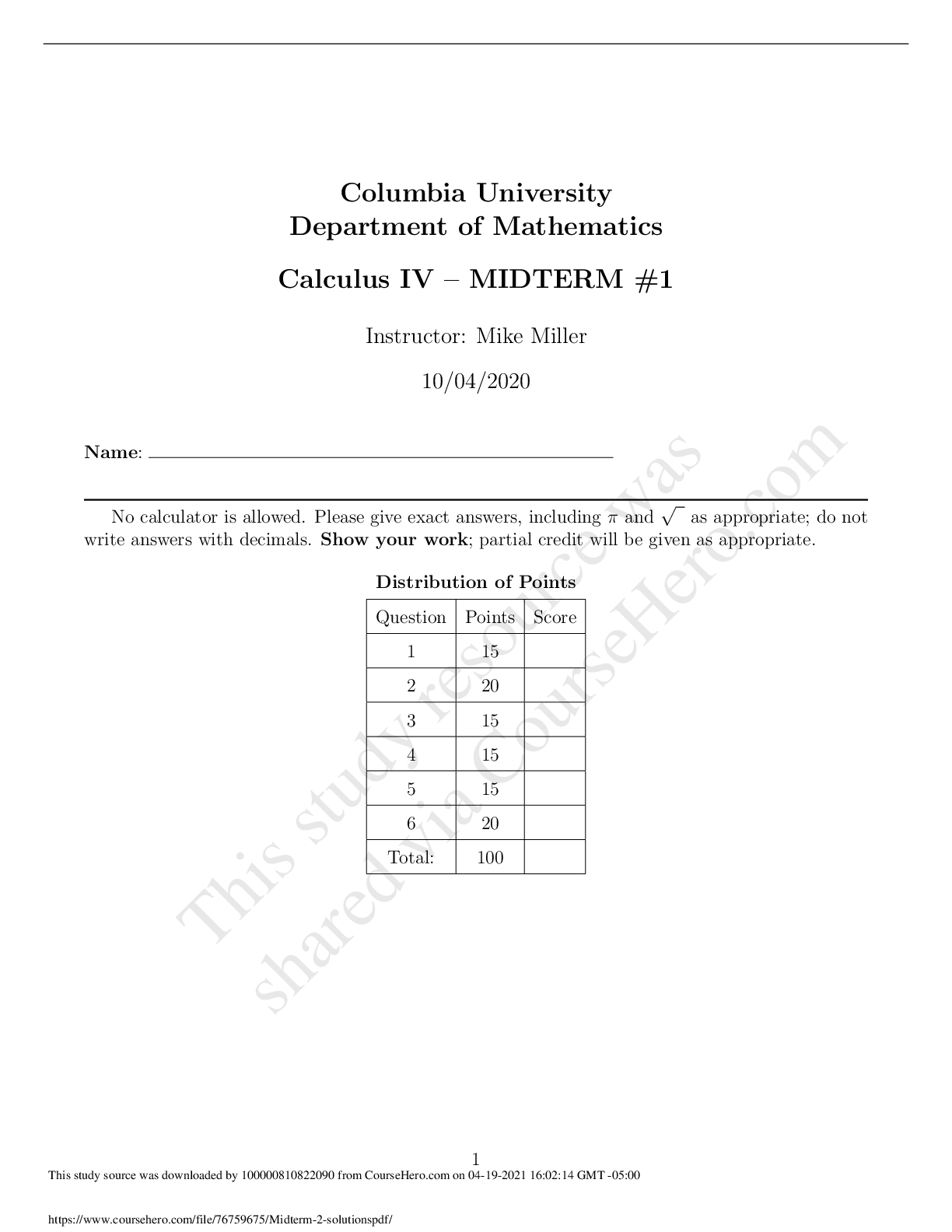


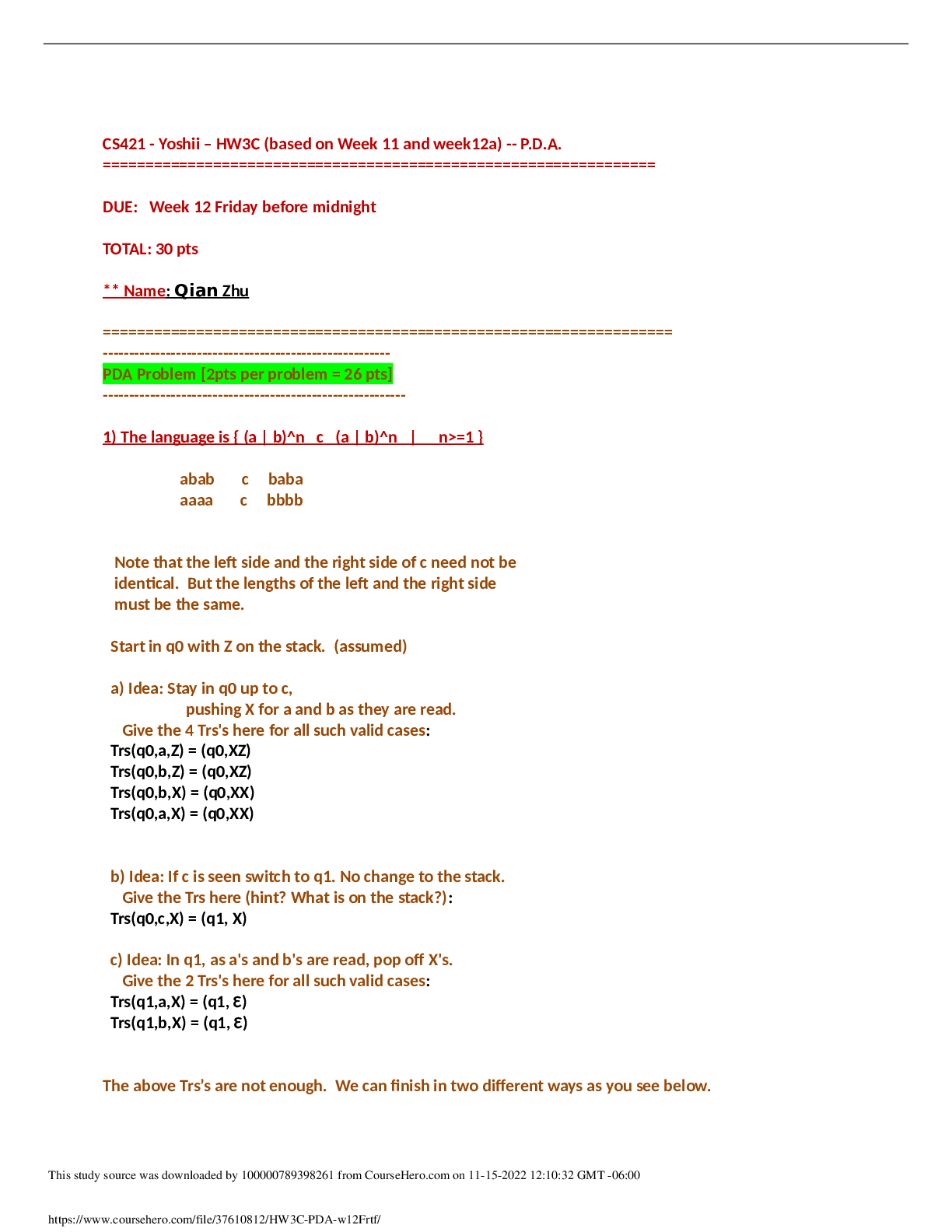


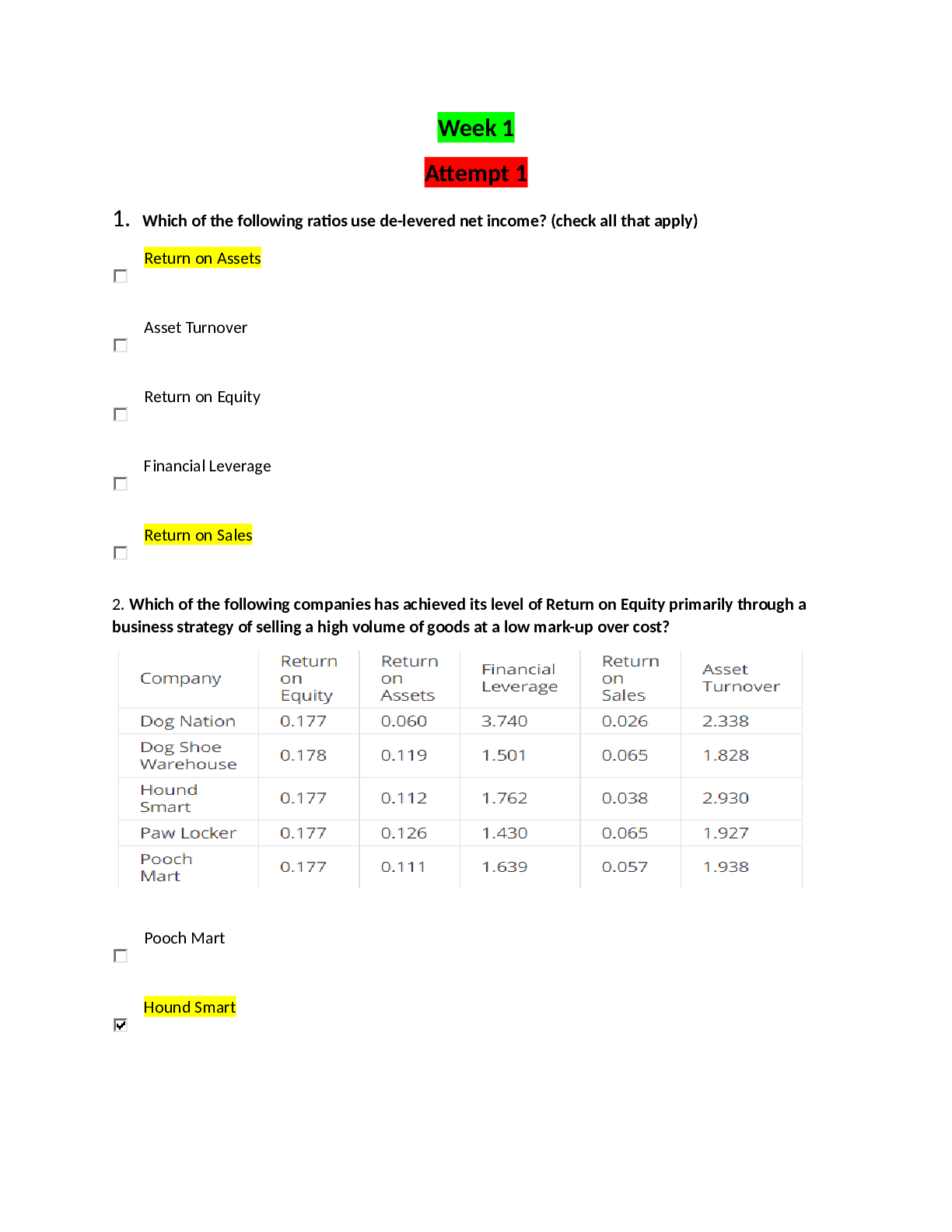
.png)
.png)
.png)
